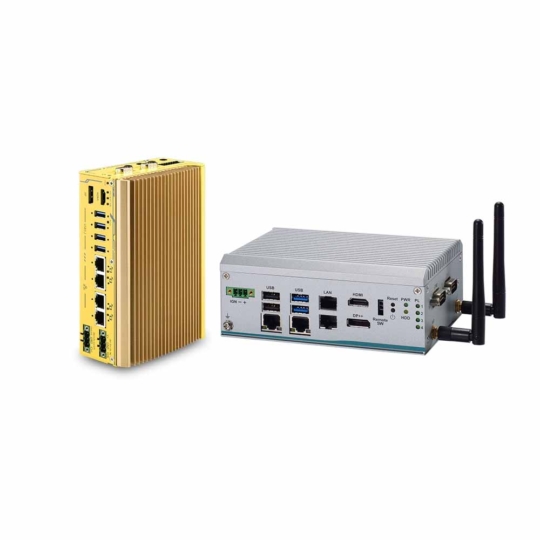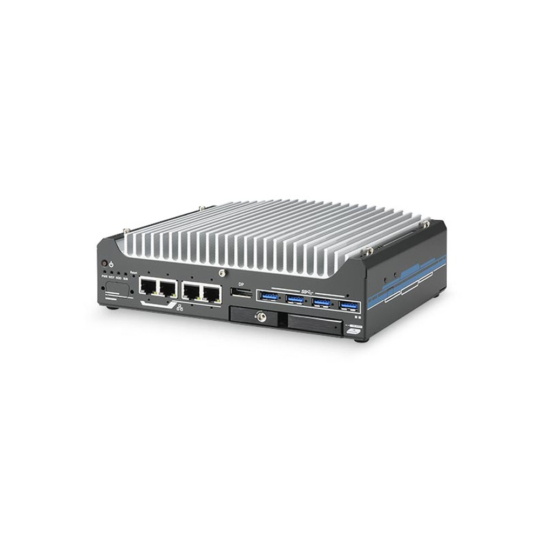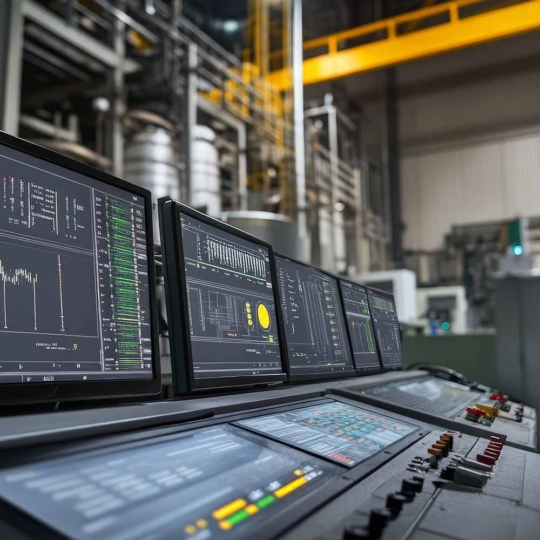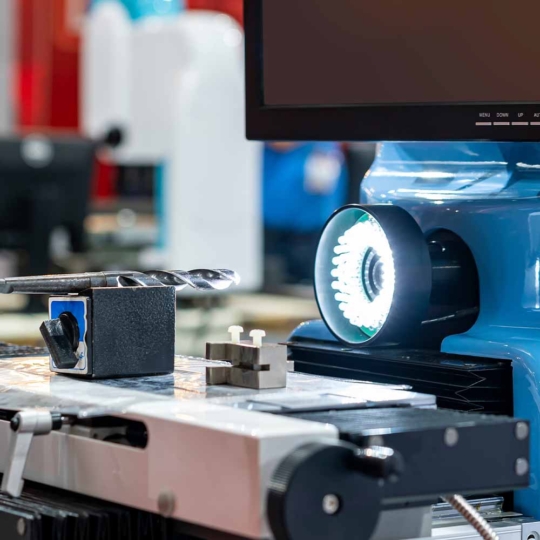Compact Rugged Computers Powered by Intel Alder Lake CPUs
In the field of edge computing, where low power and high performance are paramount, Intel Alder Lake Embedded Systems mark a significant advancement in computing technology. As Intel’s 12th Gen processors, they introduce a hybrid architecture that combines high-performance and high-efficiency cores. This innovation enables exceptional computing power while optimising energy use, which is essential for compact, rugged computers.
Compact rugged computers are designed to withstand harsh conditions and are ideal for demanding environments where traditional computers may falter. The secret to their resilience lies in their passive cooling technology, which eliminates the need for fans, reducing potential points of failure and ensuring silent operation. Intel’s Alder Lake processors play a crucial role in these systems, delivering high performance while maintaining energy efficiency — a key factor in fanless designs.
Join us as we explore our latest generation of Intel industrial PCs, built on their 12th Generation Alder Lake S and Alder Lake N CPUs, designed exclusively for space-constrained and harsh environments.
Intel's Alder Lake Processors for Edge Computing
Intel Alder Lake processors provide improved multi-threaded performance and offer enhanced support for AI and IoT applications. They are pivotal to the capabilities of our latest compact rugged computers and are particularly beneficial for industrial applications such as quality inspection in manufacturing, where image analysis can quickly identify product defects, or in transportation, where cameras can monitor driver behaviour or detect obstacles.
Featuring Intel UHD Graphics with support for Open Visual Inference and Neural Network Optimisation (OpenVINO), these 12th Gen platforms provide a strong foundation for executing deep learning and inference models, even in small-form-factor systems. OpenVINO is designed to streamline the deployment of AI workloads across Intel platforms, optimising performance for light AI applications like image recognition, object detection, and anomaly detection.
“By offloading AI workloads to the GPU, the CPU can manage other processing needs. This capability is critical in resource-constrained environments, such as IIoT deployments and edge computing, where space and power are limited.” Andrew Whitehouse, Managing Director at Things Embedded.
These 12th Generation Alder Lake CPUs offer several options tailored for industrial applications, from power-efficient CPUs in the Alder Lake-N series to high-performance 35W options in the Alder Lake-S series. Here’s an overview comparing the capabilities and typical use cases of our compact rugged computers built with both Alder Lake-N and Alder Lake-S CPUs:

Alder Lake-N CPUs (e.g., N97 and i3-N305)
Alder Lake-N CPUs are built primarily with Efficient (E-cores) and lack the high-performance cores (P-cores) present in higher-end Alder Lake models. This makes them optimised for power efficiency over sheer processing power. These chips are designed for very low power consumption, usually under 15W, making them ideal for compact, fanless, and power-sensitive industrial devices. This efficiency also contributes to lower heat output, which is beneficial in environments where passive cooling or limited thermal management is preferred. While lacking in raw power compared to higher-end Alder Lake CPUs, they provide adequate performance for applications that don’t demand high multi-threaded throughput or intensive graphics. The i3-N305, for example, includes improved graphics capabilities, making it slightly more capable for media playback or basic graphics tasks compared to lower-tier models like the N97.

Alder Lake-S CPUs (Core i3, i5, i7, and i9)
The Alder Lake S-Series CPUs combine both Performance (P-cores) and Efficient (E-cores). This hybrid architecture supports both high single-threaded and multi-threaded tasks, making it a very versatile option. The i9-12900TE for example, has a total of 16 cores (8 P-cores and 8 E-cores) with 24 threads, which is substantial for an industrial CPU in the 35W power envelope. At 35W, it’s more power-hungry than the Alder Lake-N CPUs, but it provides a significant boost in computational capability. This balance between performance and power consumption suits it for more demanding tasks while still being viable for certain power-sensitive environments. The 35W Alder Lake-S series CPUs are often capable of turbo-boosting for high-performance tasks but maintain a low base clock for efficiency when not heavily loaded. The combination of P-cores and E-cores makes the 35W Alder Lake-S CPUs significantly more capable for multi-threaded workloads and CPU-intensive tasks. Compared to Alder Lake-N CPUs, they can handle a broader range of tasks, from heavy-duty calculations and simulations to complex data processing. Albeit slightly larger, rugged computers built with Alder Lake-S CPUs can maintain a small form factor design with appropriate heat sink technology.
Industrial Applications Benefiting from Compact Rugged Computers Built on Alder Lake CPUs
Our small-form-factor rugged computers are designed to excel in environments where durability and reliability are paramount, all while benefiting from a compact design. Unlike commercial-grade PCs that rely on fans for active cooling, these ruggedised computers use passive cooling methods to manage heat. This approach minimises dust and debris infiltration, enhancing their longevity and reducing the need for on-site maintenance.
The fanless design, combined with solid-state onboard components like SSDs, means there are no moving parts, which reduces potential points of failure, especially in settings where shock and vibration are concerns. Configured with industrial-grade components, these computers are built to withstand extreme temperatures, vibrations, and shocks, making them ideal for harsh applications such as industrial manufacturing, onboard moving vehicles, or outdoor control cabinets.
Our latest compact rugged computers, featuring Alder Lake processors, boost energy efficiency by optimising power consumption. This hybrid architecture effectively balances performance and energy use. Thanks to efficient thermal management, users benefit from exceptional speed and responsiveness when required, which is essential for data processing and AI applications. This balance is especially valuable in battery-powered or off-grid applications and can offer significant energy cost savings when deploying multiple systems.
Rugged, compact computers are increasingly favoured in real-world scenarios requiring robust performance and reliability. The compact design allows them to be integrated into tight spaces, making them versatile for a wide range of demanding industrial applications.

Industrial Automation and IoT
In industrial settings, our compact rugged computers are pivotal in automation and control systems. They withstand harsh factory conditions, ensuring uninterrupted performance. Their resistance to dust and debris makes them perfect for manufacturing facilities, reducing maintenance and downtime. For IoT applications, performance per watt makes Alder Lake-N series CPUs suitable for processing sensor data or handling light AI tasks without requiring a high power draw, providing the necessary computing power to process large datasets in real time. Their durability ensures consistent operation, a vital feature for remote or unattended locations.

Robotics and Machine Vision
Compact rugged computers also play a critical role in robotics and machine vision systems by processing data closer to the source. This reduces latency and bandwidth usage, accelerating decision-making processes in applications requiring real-time analytics. The performance of Alder Lake processors facilitates this shift towards more localised computing solutions. Integrating AI onboard these PCs enables advanced tasks such as pattern recognition and predictive maintenance. This empowers industries to adopt smart technology solutions, resulting in increased efficiency and innovation. As AI continues to expand, the role of these compact rugged computers will become even more significant in driving technological advances.

Transportation
Designed for installation onboard vehicles, our compact rugged computers can be equipped with wide voltage input and ignition sensing. Intel Alder Lake processors offer significant advantages for onboard applications in demanding environments. These processors enhance fleet management capabilities by providing the power needed for real-time GPS tracking, route optimisation, and driver performance monitoring with fast, responsive data processing. In public transport, Alder Lake processors enable the smooth operation of passenger information systems, digital signage, and fare collection, ensuring efficient service and a seamless user experience.

Smart Surveillance
Alder Lake CPUs provide advanced networking capabilities that make them particularly well-suited for surveillance and the implementation of smart city technologies. High-speed data transfer and data redundancy help protect against data loss, while ensuring reliability to maintain consistent performance in various situations. This seamless connectivity allows different systems and devices to communicate effectively with one another, thereby enhancing the overall efficiency and effectiveness of urban and safety-focused solutions.
Need Help Choosing A Compact Rugged Computer?
Tell us about your application and a member of the team will get right back to you.
